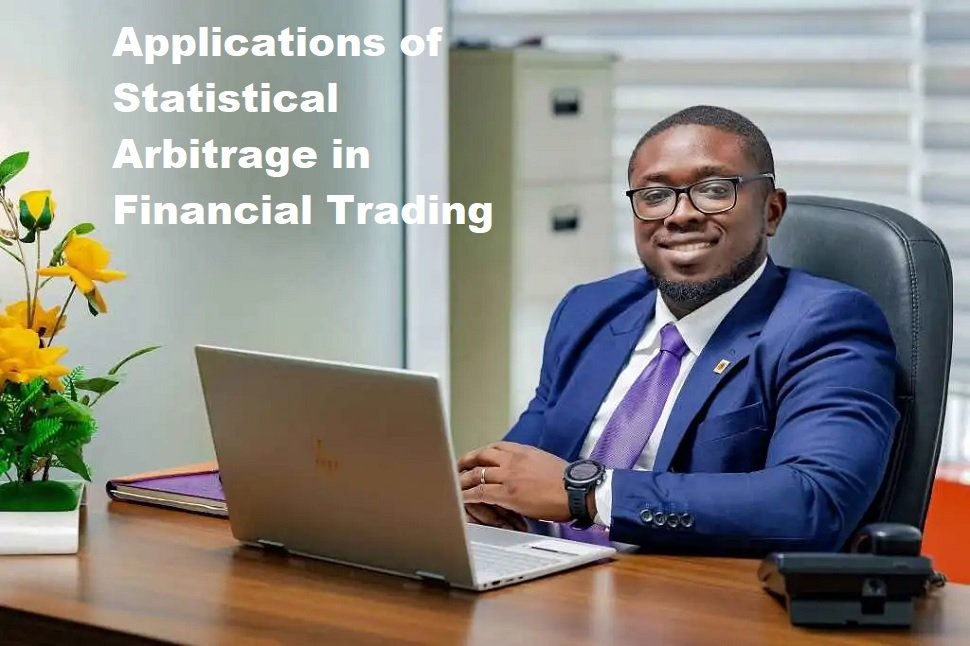Understanding Statistical Arbitrage
Arbitrage is a method of exploiting price differences of the same asset traded on different markets or different platforms. In general, an arbitrageur will buy an asset at a lower price and sell it at a higher market to make a profit without taking big risks. Essentially, arbitrage is a risk-free activity that seeks opportunities to profit from price differences. Statistical arbitrage, also known as “pairs trading” arbitrage or “relative value arbitrage,” is a quantitative approach to looking for new opportunities to generate profits. Statistical arbitrageurs typically use algorithms and complex mathematical models to analyze price patterns and historical data, then exploit short-term imbalances and dependencies between related assets.
In practice, statistical arbitrage is not as completely risk-free as classical arbitrage. Instead, this strategy involves taking a long position on one asset while going short on a related asset that is expected to have a strong positive correlation. The goal is to profit from relative changes in the prices of the two assets. Despite the potential for attractive returns and portfolio diversification, statistical arbitrage has its own risks, such as liquidity risk, model risk, and market risk. In certain situations, related assets may not correlate as expected or their correlation changes over time. Therefore, it is important for statistical arbitrageurs to regularly monitor and adjust their strategies according to market conditions.
Principles of Statistical Arbitrage
The principles of statistical arbitrage involve a number of techniques and methods in identifying relationships between different variables. These relationships include correlation, causality, and interactions between variables relevant to the arbitrage strategy. Knowledge of these relationships, and how they influence market development, is essential in designing and implementing effective arbitrage strategies.
The quantitative approach in statistical arbitrage involves the use of mathematical models and algorithms to predict market movements and identify arbitrage opportunities that may arise. In this context, quantitative models such as linear regression, time series analysis and machine learning are used to measure relationships between variables and make predictions about future price changes.
Historical data analysis is an important aspect of statistical arbitrage principles. Through collecting, reviewing, and interpreting historical data, market participants can spot recurring patterns or explain changes in relationships between variables. Enables analysts and practitioners to develop more accurate predictive models and design efficient trading strategies.
Risk management is a critical component of the principles of statistical arbitrage. Risks in financial markets can come from various sources, such as changes in fundamental economic conditions, unexpected political events or central bank policy plans. Risk management involves using appropriate instruments and techniques to manage or reduce risks in a portfolio. This can include diversifying assets or sectors, using hedging strategies, and periodically tracking portfolio performance to ensure maintaining risk exposure appropriate to the investor’s tolerance.
Applications of Statistical Arbitrage in Financial Trading
One of the main applications of statistical arbitrage is pairs trading strategies. This strategy involves taking a long position on one financial instrument and a short position on a correlated instrument, thereby reducing market risk. Pairs trading relies on quantitative analysis to identify pairs of instruments that have a long-term relationship, but may experience short-term deviations from that relationship. Data-driven trading algorithms are another approach to statistical arbitrage that uses real-time data analysis to make trading decisions automatically. These algorithms usually combine quantitative techniques and fundamental factors to generate trading signals efficiently. For example, algorithms can make purchases or sales of shares or commodities based on their historical price movements or current news. By utilizing this technology, market players can respond more quickly to price fluctuations and increase potential profits and losses.
The optimal portfolio approach is another method of applying statistical arbitrage to financial trading. This approach involves managing an investment portfolio by trying to create a portfolio that provides the highest returns for a given level of risk. To achieve this, market players utilize modern portfolio theory, as well as quantitative analysis and asset pricing models. One commonly used approach in revising an optimal portfolio strategy is to use mean-variance optimization, which attempts to create a portfolio that minimizes volatility and increases returns. Overall, statistical arbitrage can be transferred to various applications in financial trading, such as pairs trading strategies, data-driven trading algorithms, and optimal portfolio approaches. By combining quantitative analysis techniques and the latest technology, statistical arbitrage provides market participants with the tools to identify and exploit arbitrage opportunities, thereby increasing profit opportunities and reducing risk. In the increasingly competitive world of trading, the application of statistical arbitrage is becoming more important as it provides a competitive advantage to market participants who can respond efficiently to patterns and signals that emerge in the data. By understanding and applying statistical arbitrage techniques, market participants have the opportunity to improve their investment performance and create better results in the long term.
Advantages and Risks of Statistical Arbitrage
One of the main advantages of statistical arbitrage in financial trading is the potential to generate consistent profits with relatively low risk. Statistical arbitrage strategies are based on analyzing historical data and looking for price anomalies that tend to revert to the mean. This allows traders to identify opportunities that offer a fairly high profit margin with a relatively lower amount of risk expression.
Statistical arbitrage also helps in diversifying one’s trading portfolio. For example, a trader might adopt several different arbitrage strategies, each designed to detect price gaps in different markets or instruments. This diversification can help reduce overall risk while supporting long-term return stability.
Although statistical arbitrage has the potential to provide profits with relatively low risk, there are some risks that need to be faced. One of the main risks is unexpected changes in market conditions or changes in the behavior of market participants. This could cause the arbitrage model to be less effective, resulting in smaller profit margins and the potential for larger losses than anticipated.
Additionally, there are technical risks associated with algorithmic trading, such as human error, hardware failure, and connection interruptions. Because statistical arbitrage strategies rely on the speed of trade execution to take advantage of existing opportunities, these technical issues can result in significant losses. Therefore, it is important for traders to proactively manage this risk through monitoring their trading systems and planning mitigation measures when necessary.









